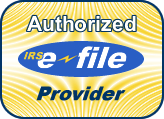Last-Minute Tax Deductions for 2011
 With tax day just around the corner, here are some ideas that can maximize your tax returns this year:
With tax day just around the corner, here are some ideas that can maximize your tax returns this year:
Invest more money in your retirement account – Your retirement funds actually aren’t taxed until that money is taken out of your retirement account. Contributions to retirement funds can be made as late as April 15th, and the taxable limits for 2011 are $5,000 for an IRA (this does not include catch-up contributions for those 50+) and $16,500 for a 401(k). Not only will you be saving money on your taxes this year, but you’ll be bolstering your retirement fund for the future.
Make charitable donations – Although you can only deduct donations given in the taxable year of 2010, now is the time to pull out those receipts and bank statements. If you haven’t been keeping track of the charitable donations you make in a year, remember to keep your receipts next time, or ask for Tax ID numbers. Not only do monetary charitable donations count: old clothes, books, furniture, appliances, and other odds given to charitable organizations qualify as deductions, too – to the benefit of your community! If you have any property that has appreciated in value from the point you bought it, donating it can let you deduct more than you originally paid. Using a simple tax calculator online can give you an estimation of the impact your donations have on your overall tax refund.
Consider a Roth account – While you don’t get a tax break when you put money into a Roth, the money you invest gets to grow tax-free as long as the account is open. Regardless of rising tax rates in the future, you have a haven to place your money where it can still accumulate growth.
Write off the interest on your student loans – That’s right. If you have qualified loans out for the purpose of pursuing higher education, you can get up to $2,500 in deductions towards paying off the interest on your loans. This type of deduction is not an itemized deduction, but it is used to calculate your AGI.
Casualty and Theft Loss – If you and your family were the victims of a natural disaster, theft, or even a car accident, it’s possible to get up to $100 back per occurrence as long as they are not covered by your insurance. A few examples include the loss of a bank account due to the fault of your bank; fire, flood and storm damage, including hurricanes and tornadoes, and even the replacement cost of trees and shrubs damaged in fires or storms.
There are numerous options to help you optimize your tax returns this year. Make sure you are getting back money wherever you qualify for it, and be mindful of the smartest ways to invest your money for the future.
Olivia Mungal is an award-winning writer with pieces of her work archived in the Library of Congress. With a background in Law, she tackles convoluted economic issues in entertaining and engaging ways.
Should You File a Tax Return?
 Do you ever wonder whether your income is high enough to warrant the filing of a tax return? Because the minimum income level varies depending on filing status, age, and the type of income you receive, it can be a bit complicated.
Do you ever wonder whether your income is high enough to warrant the filing of a tax return? Because the minimum income level varies depending on filing status, age, and the type of income you receive, it can be a bit complicated.
Use the following guide to determine whether you must file a federal income tax return for 2010.
Single Taxpayers
If you expect to file a single return, the IRS requires you to file a return for 2010 if your gross income for the year is at least $9,350 if you are under age 65 and $10,750 if you are 65 or older.
Married Filing Jointly
For married persons filing jointly, you are required to file a return if gross income for 2010 is at least $18,700 if both of you are under age 65. If one of you was at least age 65 in 2010, the limit is $19,850 – and if both of you were 65 or over, you must file if you made at least $20,900.
If you are not living with your spouse at the end of the year or you weren’t living with them on the day they passed away, the IRS requires you to file a return if your gross income is at least $3,650. Each personal exemption in 2010 is worth $3,650.
For married persons filing a separate return, no matter what age, you must file a return if gross income is at least $3,650.
Head of Household
For persons filing as head of household, you must file a return for 2010 if gross income is at least $12,000 if under age 65 and $13,400 if at least age 65.
Qualifying Widow or Widower
For persons filing as a qualifying widow or widower with a dependent child, you must file a return for 2010 if gross income is at least $15,050 if under age 65 and $16,150 if at least age 65.
Other Situations That Require Filing
Even if you don’t earn this much income, other situations necessitate filing a tax return. For example, a dependent has to file a return for 2010 if they received more than $950 in unearned income or more than $5,700 in earned income.
Other situations include:
You Owe Certain Taxes. If you owe FICA or Medicare taxes (also called payroll taxes) on unreported tips or other reported income that were not collected, you must file a return. You must also file a tax return if you are liable for any alternative minimum tax. Finally, you must file a return if you owe taxes on individual retirement accounts, Archer MSA accounts, or an employer-sponsored retirement plan.
Advance Earned Income Tax Credit Payments. The Earned Income Tax Credit is a federal income tax credit for eligible low-income workers. The credit reduces the amount of tax an individual owes, which may be returned in the form of a refund. If you receive advance payments for the earned income credit from your employer, you must file a return.
Self-Employment Earnings. If your net earnings from self-employment are $400 or more, you must file a return.
Church Income. If you earn employee income of at least $108.28 from either a church or a qualified church-controlled organization that is exempt from employer-paid FICA and Medicare taxes, you must file a return.
Questions?
Contact me for more information about filing requirements and your eligibility to receive any tax credits.
The Home Office Deduction
The tax break has been expanded, but make sure you know the rules.
 The Taxpayer Relief Act of 1997 included a modification of the IRS’s definition of “principal place of business” that will permit a larger number of taxpayers to qualify for the home-office deduction. For tax years beginning after 1998, the deduction will be available for home offices that are used for administrative or management activities related to the taxpayer’s business (for example, billing, maintaining records, ordering supplies, scheduling appointments, creating reports).
The Taxpayer Relief Act of 1997 included a modification of the IRS’s definition of “principal place of business” that will permit a larger number of taxpayers to qualify for the home-office deduction. For tax years beginning after 1998, the deduction will be available for home offices that are used for administrative or management activities related to the taxpayer’s business (for example, billing, maintaining records, ordering supplies, scheduling appointments, creating reports).
Business/Personal Boundaries Home-based businesses, by their very nature, often have less structure. While many consider this to be an advantage, working at home can be a double-edged sword. The lack of structure tends to result in home-based workers putting in more hours than when they did not work at home. Having set office hours and “closing up” at the end of the day will help you balance business and personal matters.
Under the amended rules, a taxpayer is allowed to deduct expenses of a home office that is used for business purposes only if the space is used “exclusively” on a “regular basis” as:
The principal place of business carried on by the taxpayer,
- A place for meeting with clients or customers in the ordinary course of business, or
- A place for the taxpayer to perform administrative or management activities associated with the business, provided there is no other fixed location from which the taxpayer conducts a substantial amount of such administrative or management activities.
The Taxpayer Relief Act of 1997 added this third provision to the definition of principal place of business.
The exclusive-use test will be satisfied if a specific portion of the taxpayer’s home is used solely for business purposes or inventory storage. The regular-basis test is satisfied if the space is used on a continuing basis for business purposes (that is, incidental business use will not qualify.)
In determining the principal place of business (first provision under the definition of principal place of business, above), the IRS considers two factors: Does the taxpayer spend more business-related time in the home office than anywhere else? Are the most significant revenue-generating activities performed in the home office? Both of these factors must be considered when determining the principal place of business.
Employees
To qualify for the home-office deduction, an employee must satisfy two additional criteria. First, the use of the home office must be for the convenience of the employer (for example, the employer does not provide a space for the employee to do his/her job). Second, the taxpayer does not rent all or part of the home to the employer. Employees who telecommute may be able to satisfy the requirements for the home-office deduction.
Expenses
Home office expenses are classified into three categories:
Direct Business Expenses relate only to the taxpayer’s business activity (for example, supplies, salaries). Expenditures for additional phone lines, long-distance calls, and optional phone services for the business may be deductible as direct business expenses. However, basic local telephone service charges (that is, monthly access charges) for the first phone line in the residence generally do not qualify for the deduction.
Permissible Expenses are expenditures that could be included as itemized deductions in the individual’s tax return (for example, mortgage interest, real estate taxes, and casualty losses).
Previously Non-deductible Expenses would not be deductible if not for the home office deduction (for example, insurance, utilities, and depreciation).
Limitation
Home office deductions are limited to the gross income from the business activity. Previously non-deductible expenses cannot create or increase a net loss from a business activity. However, a carryover to future years is available for unused, allowable home-office expenses.
Sale of Residence
Tax rules generally permit a $500,000 (married filing jointly) or $250,000 (single or married filing separately) exclusion on the gain from the sale of a primary residence. If part of the home is used for business purposes, the gain is divided into two parts — personal-use portion (the exclusion applies) and business-use portion (exclusion does not apply). For example, a taxpayer who qualifies for the exclusion, but has used 25 percent of the home for business purposes during the during past five years, will only be able to apply the exclusion against 75 percent of any gain recognized on the sale of the home.
As with many tax laws there are exceptions to this rule. If you’d like a clearer picture of the size of the exclusion you qualify for, please call us.
Taxes
The “office-in-home” tax deduction is valuable because it converts a portion of otherwise nondeductible expenses (for example, utilities and homeowners insurance) into a deduction. The treatment of home offices for income tax purposes is one of the more controversial provisions in the tax law.
An individual is not entitled to deduct any expenses of using his/her home for business purposes unless the space is used exclusively on a regular basis as the “principal place of business.” The IRS applies a 2-part test to determine if the home office is the principal place of business.
Do you spend more business-related time in your home office than anywhere else?
Are the most significant revenue-generating activities performed in your home office?
If the answer to either of these questions is no, the home office will not be considered the principal place of business, and the deduction will not be available.
Business use of the home by an employee must also be for the convenience of the employer. These rules make it very difficult for an employee to qualify for the deduction.
If these three tests are met, the deduction is limited to the gross income from the business activity. Furthermore, a deduction for home-office expenses cannot create or increase a net loss from the business. Any disallowed deduction may be carried over to future years.
Taxpayers taking a deduction for business use of their home must complete Form 8829. Some tax experts believe that taking a deduction for home-office expenses, whether clearly allowable or not, increases the likelihood of an IRS audit.
These are some thoughts to consider.
If you have a home office or are considering one, please contact me. This is a specialty of mine.
A Week in Perspective
 It would seem that while I was out of town last week I had a lot of extra time to look around. Surf the net if you will. This weeks perspective is the largest I have ever posted. I hope you all have the time to enjoy each site as the information is as always well worth the read.
It would seem that while I was out of town last week I had a lot of extra time to look around. Surf the net if you will. This weeks perspective is the largest I have ever posted. I hope you all have the time to enjoy each site as the information is as always well worth the read.
Finding Work You Enjoy – Recently asked if folks would take a pay cut for happiness. Not surprisingly, many people said that they would. While I’d also be willing to take a pay cut to increase happiness, I’d rather take a pay increase, and/or make my job more enjoyable. In other words, I think there are usually other options
And My favorite post this week has three videos.
If Anyone Wonders Why the Economy Isn’t Adding Jobs – All I am going to say here is Read it and watch the videos. Oh, Russ I’d like to know where do you get these videos?
This weeks must read
CASE IN POINT – By reducing one’s AGI one can often increase a multitude of deductions and credits and reduce taxable Social Security or Railroad Retirement benefits. Here is an excellent case in point.
Verify the Background When Hiring a Bookkeeper – Always follow your gut instinct:-if something doesn’t feel right, it probably isn’t! Always verify the background and skills of anyone you hire to handle your books before they begin work.
How and When to Say No to a Client – We’ve discussed saying no to potential clients before, but the post was focused on how to recognize bad clients and/or bad projects and deadbeats. While it’s definitely important to pay attention to the red flags that may be telling you that a prospect or a project is a dud, there are other times you may find yourself refusing work.
Here are some instances when you may decide to turn a project down:
Lame Duck, Lame Duck, Goose! – Nothing is quite so exciting as a lame duck Congress. And I mean that in the most snarky, sarcastic, rolling of my eyes kind of way.
How Getting Married Affects Your Taxes – When you get married, your tax situation changes – for better or for worse – and there are decisions to make regarding how the two of you should file. Here are the most important things to know.
If your first 2011 paycheck is smaller, thank, er, blame Congress – the payroll withholding tables for 2011 that employers (or payroll companies that workplaces outsource the job to) are now based on what the law will be in January.
“Many of life’s failures are people who did not realize how close they were to success when they gave up.” – Thomas Edison
ITEMIZED DEDUCTIONS: A COMPLETE GUIDE TO SCHEDULE A – a new comprehensive special report that discusses just about everything that is, and is not, deductible on the 2010 Schedule A.
In it he discusses –
- Deducting Medical Expenses,
- Deducting Taxes,
- Deducting Interest,
- Deducting Contributions,
- Deducting Casualty and Theft Losses, and
- Deducting Miscellaneous Deductions
Spend the money. You need this. I was allowed to review this and it is the best information you can find.
The Case For (and Against) Killing the Mortgage Interest Deduction – he chairmen of the president’s deficit commission skewered a number of sacred cows in their widely discussed, and widely criticized, report. But few ideas have received more outrage than the plan to limit the mortgage interest deduction — the costliest tax giveaway in the United States. What is the mortgage interest deduction and why should we want to reduce it?
Why Clients Cling to the Stock Market—Even When They Suffer – Why do people stay in the stock market even when they take losses? What is the psychology behind this dilemma? A financial planner must understand this psychology.
Retirement Planning Strategies – The strategies you use will depend on how far away you are from possible retirement, your expenses, the tax bracket you expect to be in, what you expect to be able to do once you’ve retired, and how long you believe you might live. (With so many variables to consider, getting professional, customized advice is a great idea when it comes to planning for retirement.)
Meanwhile, here are a few government resources that may get you thinking:
Retiring Early? – Okay let’s be honest here, how many people my age are actually going to be retired at 50 or 55? I got into it with my mom this weekend because the TRUTH is pretty much none. And an even bigger truth is that people my mom’s age of 58 can’t AFFORD to be retired like her because they don’t have the awesome pension and medical plan she has. Bottom line? She’s the last of the dinosaurs.
Year-End Tax Planning – Going Against Conventional Tax Knowledge? – For years, we accountants have advised clients to “defer income” and “accelerate expenses.” The thought behind this strategy is that it is better to pay tax next year than it is to pay it this year. In most years, under most circumstances, this approach makes perfect sense. But. . .
Some Thoughts on Passive Personal Finance Barriers – there are many opportunities to utilize passive barriers in your own financial life. I certainly use them in my own life in order to subtly push myself into good financial habits. Here are nine passive barriers you can utilize in your own life to encourage better financial results:
How to make sure your QuickBooks Company File agrees to your tax return – You may not even be aware of it because your CPA very possibly makes an adjustment without even bothering you about it, but it is very possible and in my experience very likely that each year when you submit your QuickBooks Company file or your profit and loss and balance sheet to have your tax returns prepared the Retained Earnings Account does not reconcile.
Impulse Control – Breaking free of such impulses can have a very large and dramatic effect on your finances. It becomes easier to budget and plan ahead. You suddenly have more resources each month with which you can save, pay off debts, or invest for the future. Best of all, you find that you value the things that you do buy a lot more than you used to.
5 tax moves to make now – Everyone’s talking about what taxes might look like in 2011. Quit worrying about future IRS bills! Make some tax moves now that could lower what you’ll owe Uncle Sam on your 2010 income tax return. Here are five easy ones.
2 Child-Care Tax Breaks So You Can Go to Work – As many parents know, it can cost money to go to work. Those with kids under the age of 13 may have to set aside a little extra for childcare expenses. Fortunately, a federal income tax credit can help pay the bill. It’s available to all eligible parents, regardless of their income (although lower-income folks get bigger credits). You might also be eligible for your employer’s childcare flexible spending account plan. When the FSA deal is available, it can be a bigger tax-saver than the credit. Here’s what you need to know about both breaks.
How to Survive the Holidays without Wiping Out Your Savings Account – It’s almost that time of year again. I’m not talking about gingerbread houses, cocoa, and caroling; I’m talking about shopping, impulse-buying, digging ourselves into more credit card debt, and raiding our savings accounts. We undoubtedly lose a bit of sanity, self-control, or both when it comes to holiday spending.
How to Keep Your Identity – and Your Credit – Safe While Shopping – Each year more people are becoming victims of identity theft. When this happens, it could take years for the person to regain their rightful identity and their good credit standing. And the bad news is that identity thieves are getting much more sophisticated about identity theft and will stop at almost nothing
How to Avoid Identity Theft and Protect Your Finances – One of the hot financial topics today is identity theft. And if you think it can never happen to you, you are wrong. According to the Federal Trade Commission (FTC), there were 1.3 million people falling victim to the crime, which accounts for 21% of total complaints.
Tax cuts outlook spurs Roth conversions – It’s looking more likely that the expiring Bush tax cuts will live at least a bit longer and that’s starting to have a domino effect. Take Roth IRA conversions. With the elimination of the $100,000 income cap, anyone can now convert a traditional IRA to a Roth.
How to Start Investing (with $1,000 or Less) – I want you to know that it is possible to get started with investing, even if you don’t have a huge amount. I’ve included a small guide on how you can set up an IRA and maintain your contributions. Hopefully you can use it as a jumping point and build from it.
Finding Money to Invest – I know your type. You always say you’re going to start investing for your future once you have just a little extra money in your account. The problem is time keeps passing by and that extra money always seems to end up somewhere else!
Not Sure About a Roth Conversion in 2010? Don’t Fret – As you’ve undoubtedly seen EVERYWHERE, 2010 is a special year with regard to Roth Conversions. This is due to two changes to the law that took effect this year: 1) the income limit on Roth Conversions was lifted – previously if your MAGI was greater than $100,000 you couldn’t do a conversion; and 2) there is a special provision for 2010 conversions that allows you to spread the tax over 2011 and 2012.
Take your Required Minimum Distribution – RMD – RMDs dictate when tax sheltered retirement plans should end. This is because congress did not intend on allowing retirement plans to be major multi-generational wealth transfer vehicles. With the concept of the stretch IRA you can push this to the limit, but still have to contend with a required annual distribution.
More Tricks to Get Going: Saving Enough for Retirement!
Making the Most of Your Workplace Retirement -
Planning for a secure retirement can be challenging, but the sooner you start, the easier it will be. The Department of Labor’s Employee Benefits Security Administration offers the following tips to help you succeed in reaching your retirement goals:
Rollover 401(k)s to an IRA – Why and How – studies show that the average American holds over eight jobs between the ages of 18 and 45. Because of that, many are asking the question during job transitions, “what do I do with my retirement benefits now that I’ve changed jobs?” Today, you may have retirement benefits in a variety of different accounts. You may have a 401(k), IRA, 403(b) or a privately held pension plan especially if you’re a federal, state, or government employee. It would make sense (where possible) to consolidate all of these accounts in to one fund, right?
In Graphics: How Does a 529 Plan Work?
From Traditional IRA to Roth IRA: New Rollover Rules – For years prior to 2010, only taxpayers with modified AGI of $100,000 or less generally were permitted to convert a traditional IRA into a Roth IRA. For years beginning in 2010 and after, the AGI limitation has been eliminated. Thus, regardless of AGI, all otherwise eligible taxpayers will be allowed to convert an IRA to a Roth IRA. The amount converted is includible in income as if a withdrawal had been made, but no early withdrawal penalties are assessed.
Seven Errors to Avoid in the IRS Offer in Compromise Process – While the IRS is more determined than ever to enforce collection activity for back taxes owed, the IRS Offer in Compromise program can help taxpayers who are experiencing significant financial problems get a fresh start, if they qualify.
However, it is important to note that the IRS Offer in Compromise acceptance rate is less than 23% (less than one in four will be accepted) when a taxpayer prepares, submits, and negotiates his/her offer without professional expert representation.
Fixing FBAR – The curent rules for reporting foreign bank accounts are a mess. Many taxpayers have innocently exposed themselves to horrendous fines for foot-fault violations of these obscure rules — even when they are fully tax compliant. The Treasury’s shoot-the-pickpockets enforcement policy makes a bad situation worse.
How to Raise Financially Savvy Kids – Children are often not adequately prepared for a financially savvy adult life. Between a lack of formal education and bad habits at home, kids can often be set up to make some costly mistakes once they set out on their own. Therefore, it is essential that parents begin to instill financial values in their children and it is never too early to start.
20 Blogs Accounting Students Will Love.
Helping your boss, his wife, and his mistress evade taxes may be unwise – An Ohio accountant was sentenced last week to 11 years in prison on federal tax charges. It would take me at least that long to understand the situation that led to his sentence.
Students get a grip on money – She plans on keeping track of her spending by writing down and budgeting all of her expenses, a tip she learned at the Get a Grip on Your Finances workshop.
CPA Websites Marketing Tips – Why This Feature Draws in More Clients
Criminal borrowing – When a small business fails to remit payroll withholding to the IRS, sometime they justify it to themselves as only a short-term loan to tide the business over tough times. The IRS doesn’t look at it that way at all, as a South Dakota manufacturer has learned the hard way:
Got Payroll Tax Problems? Get Help from a Tax Professional – If you are in a position in a company that allows you to make the payroll tax decisions, we hope that you are making the right decision. It is so easy to divert the money to be used in other areas of the business yet what you may not know is that the IRS acts aggressively when collecting past payroll taxes. If you owe past payroll taxes, seek help from a tax professional – a tax attorney or Certified Tax Resolution Specialist – before the IRS seeks you out and puts you out of business and behind bars.
“For myself, I am an optimist – it does not seem to be much use being anything else.” – Sir Winston Churchill
Zapper Zapped – There are some technologies that the IRS doesn’t appreciate at all. High in the IRS black book of bad modernity is “zapper” software, which is software designed to hide from the IRS revenues recorded in other accounting software. The IRS displayed its feelings in this Justice Department press release:
Did Obama do good? – Found this piece from the NYT from a friend’s link, How Obama saved capitalism and lost the midterm elections. So what has impressed me? Well how about the 77% return on the stock market and 48% if you invested in the S & P index? Amazing. Seriously you would think that we are out of a recession.
Tax Basis: An Infographic – With the repeal of the estate tax for 2010, and its return in 2011, the concept of tax basis has extra significance this year. The following infographic illustrates some of the basics associated with this complex concept.
RESTATING MY THOUGHTS ON “TAX EXPENDITURES” – As expected the proposal to start from “ground zero” by doing away with all “tax expenditures” currently in the Tax Code from the discussion draft issued by the co-chairmen of President Obama’s National Commission on Fiscal Responsibility and Reform has not been universally praised.
How Much Money do Small Business Owners Make? – Many people are curious about what the average small business owner earns. The IRS Statistics of Income provides some data on the average income of sub chapter S corporations and sole proprietorships, which helps to estimate small business owners’ earnings.
4 People You Should Never Hire – There are many people you can hire to make your life a little easier. These people have successful businesses because people operate on the assumption that they just don’t have enough time to do certain tasks. The truth is, you don’t need to hire these people because you do have enough time to take care of the tasks they would take care of for you. In fact, most of the time hiring these people simply constitutes laziness on your part.
How to Tell if an Option is In the Money – A stock option that is considered to be in the money holds what is called intrinsic value. The intrinsic value of an option is the difference between the strike price and the actually share price of the stock. In this case, the strike price of the option is more valuable than the actual share price of the stock if it were to be exercised.
Did you miss the guest post I had yesterday? If so please check it out, Simple solutions to IRS tax debt problems
Couples and Money: Do You Have Joint or Separate Finances? – Should a long-term couple (married or not) have combined or separate finances?
How Do Couples Divide Their Money?
“My problem lies in reconciling my gross habits with my net income.” –Errol Flynn
Creating a Financial Plan – The list of required equipment for creating a financial plan isn’t very long: a sharp pencil, an eraser, blank paper.
Small Businesses and Expanded 1099 Filing Obligations - Will the new 1099 reporting be repealed? It would be a good idea given that it is not really designed to lower the tax gap. Congress should find alternatives that really do address the tax gap without requiring compliant businesses to incur great costs. A challenge of course will be Congress to find a revenue offset that people will tolerate.
Will the 1099 rule be the first part of Obamacare to be repealed? – It looks that way. Max Baucus, Senate Finance Committee Chairman, says he will introduce a stand-alone bill to repeal the Obamacare provision that vastly expands the Form 1099 requirements for businesses.
This is great. Social Security vs. Saving – “. . . started work at age 20 retire at age 70. Over 50 years of work I average $50,000 a year. If I put 10% of my income away every month from age 20 to age 70 how would I come out versus depending on the government social security checks I would receive after retirement.”
Small Business Guide to Cloud Computing – Let’s start with defining cloud computing. Cloud computing can simply be defined as a computing model in which services (e.g. web based email) and storage (e.g. web hosting) are provided over the Internet.
Deficit cutting proposals are not popular – The survey found that 57 percent of respondents were uncomfortable with gradually raising the Social Security retirement age to 69 over the next 60 years. Roughly 70 percent had qualms about cutting Social Security, Medicare and defense programs in order to reduce the deficit.
Deductions, Credits and Tax Reform
The Grand Delusion: Balancing the Federal Budget Without Tax Increases – The deficit cannot be eliminated merely by cutting spending, unless Congress wants to strip the military down to pretty much nothing, eliminate Social Security and Medicare, and put an end to a variety of other programs.
Do YOU Want To Pay More to the IRS? Learn About the AMT - Without the alternative Minimum Tax patch, middle-class taxpayers could owe a greater amount of alternative tax to the IRS. Congress needs to take action and save taxpayer’s money A.S.A.P!
The best time to start a startup is not tomorrow, not next week, and certainly not next year. The time is right now, at this very second. Here’s why: 14 Reasons Why You Need To Start A Startup
Intuit 2020 Report: 20 Trends That Will Shape the Next Decade builds on more than five years of research led by the Institute for the Future and Emergent Research. It is the first in a series of reports looking at key trends affecting consumers and businesses in the coming years. Subsequent reports will drill down into specific trends and industries, but the current report presents a broad overview.
20 Questions to Ask Yourself Before Accepting a New Job – before you jump at the opportunity, I recommend taking a few minutes to really evaluate the position and how well it meets your needs.
Why You Don’t Want a Tax Guy Doing Your Books – In short, I suggest you hire two accounting professionals – one to do your taxes and advise you on tax law with certain decisions and another with the skills to help you make your business the best it can be.
Tax Filing Using Tax Software – Have you ever wondered just how hard is to file a tax return? If you are single or even married and don’t have many claims or exceptions to report then you might want to consider filing return yourself; and even if you did have to claim several items in your return, today’s tax software applications are up to date with all the changes made to tax laws, those who use these programs usually end up saving quite a lot in tax return fees.
Be sure to check out these round ups from other sources.
WHAT’S THE BUZZ? TELL ME WHAT’S A HAPPENNIN’
BlogRoll Beans “Almost” Thanksgiving Addition
WHAT’S THE BUZZ? TELL ME WHAT’S A HAPPENNIN’ – WEDNESDAY EDITION
In Pursuit of Debt Freedom: Mint’s Personal Finance Roundup
Top Blogs On Startups – This is a list of the best startup blogs, ranked daily based on traffic, search authority and online buzz.
Other info:
Building the Firm of the Future
How to Write Magnetic Headlines
13 Great Sites for WordPress Tips, Tutorials, and Hacks
11 Ways To Do More With Online Video
50 Ways to Get Your Site Noticed
How exceptional is your client service?
Do You Qualify for the Earned Income Tax Credit?
 Millions of Americans forfeit critical tax relief each year by failing to claim the Earned Income Tax Credit, a federal tax credit for low-to-moderate-income individuals who work. Taxpayers who qualify and claim the credit could owe less federal tax, owe no tax, or even receive a refund.
Millions of Americans forfeit critical tax relief each year by failing to claim the Earned Income Tax Credit, a federal tax credit for low-to-moderate-income individuals who work. Taxpayers who qualify and claim the credit could owe less federal tax, owe no tax, or even receive a refund.
This year it’s even easier to determine whether you qualify for the EITC. The EITC Assistant, an interactive tool available on the IRS website, removes the guesswork from eligibility rules. Just answer a few simple questions about yourself, your children, your living situation, and your income to find out if you qualify and estimate the amount of your EITC. You will see the results of your responses right away. Taxpayers, tax professionals, employers, community groups, and public service organizations are encouraged to use the EITC Assistant, which is available in both English and Spanish.
The EITC is based on the amount of your earned income and whether or not there are qualifying children in your household. If you have children, they must meet the relationship, age, and residency requirements. Additionally, you must file a tax return to claim the credit.
General requirements: If you were employed for at least part of 2010 and are at least age 25, but under age 65, you may be eligible for the EITC based on these general requirements:
- You earned less than $13,460 ($18,470 if married filing jointly) and did not have any qualifying children.
- You earned less than $35,535 ($40,545 if married filing jointly) and have one qualifying child.
- You earned less than $40,363 ($45,373 if married filing jointly) with two or more qualifying children.
- You earned less than $43,352 ($48,362 if married filing jointly) with three or more qualifying children.
Tax Year 2010 Maximum Credit
- $5,666 with three or more qualifying children
- $5,036 with two or more qualifying children
- $3,050 with one qualifying child
- $457 with no qualifying children
Note: The American Recovery and Reinvestment Act (ARRA) provides a temporary increase in EITC and expands the credit for workers with three or more qualifying children. These changes are temporary and apply to 2009 and 2010 tax years.
Note: The 2010 maximum Advanced Earned Income Tax Credit (AEITC) the employer is allowed to provide each of their employees is $1,830 per year.
Tax Benefits for Job Seekers
 Some people- especially these days – are polishing their resumes and attending career fairs in search of employment. If you are searching for a job this summer, you may be able to deduct some of those expenses on your tax return.
Some people- especially these days – are polishing their resumes and attending career fairs in search of employment. If you are searching for a job this summer, you may be able to deduct some of those expenses on your tax return.
Here are six things you need to know about deducting costs related to your job search.
- To deduct job search costs, the expenses must be spent on a job search in your current occupation. You may not deduct expenses related to looking for a job in a new occupation.
- You can deduct employment and outplacement agency fees you pay while looking for a job in your present occupation. If your employer pays you back in a later year for employment agency fees, you must include the amount you receive in your gross income up to the amount of your tax benefit in the earlier year.
- You can deduct amounts you spend for preparing and mailing copies of a resume to prospective employers as long as you are looking for a new job in your present occupation.
- If you travel to an area to look for a new job in your present occupation, you may be able to deduct travel expenses to and from the area. You can only deduct the travel expenses if the trip is primarily to look for a new job. The amount of time you spend on personal activity compared to the time spent looking for work is important in determining whether the trip is primarily personal or is related to your job search. (If you have questions about how to figure this, call us.)
- You cannot deduct job search expenses if there was a substantial break between the end of your last job and the time you begin looking for a new one.
- You cannot deduct job search expenses if you are looking for a job for the first time.
Where to Learn About Job Openings
- Personal contacts
- School career planning and placement offices
- Employers
- Classified ads:
- National and local newspapers
- Professional journals
- Trade magazines
- Internet resources
- Professional associations
- Labor unions
- State employment service offices
- Federal Government
- Community agencies
- Private employment agencies and career consultants
- Internships
Here are some job-seeking goals:
- 3 prospects per-day
- 4 phone calls each morning
- 10 resumes sent out each week
- 4 informational interviews per-week
- 3 interviews per-month
Do I have to File a Tax Return?
Do I have to File a Tax Return?
You must file a tax return if your income is above a certain level. The amount varies depending on filing status, age and the type of income you receive.
Check the Individuals section of IRS.gov or consult the instructions for Form 1040, 1040A, or 1040EZ for specific details that may affect your need to file a tax return with the IRS this year.
Even if you don’t have to file, here are eight reasons why you may want to file:
- Federal Income Tax Withheld If you are not required to file, you should file to get money back if Federal Income Tax was withheld from your pay, you made estimated tax payments, or had a prior year overpayment applied to this year’s tax.
- Making Work Pay Credit You may be able to take this credit if you have earned income from work. The maximum credit for a married couple filing a joint return is $800 and $400 for other taxpayers.
- Government Retiree Credit You may be eligible for this credit if you received a government pension or annuity payment in 2009. However, the amount of this credit reduces any making work pay credit you receive.
- Earned Income Tax Credit You may qualify for EITC if you worked, but did not earn a lot of money. EITC is a refundable tax credit; which means you could qualify for a tax refund.
- Additional Child Tax Credit This credit may be available to you if you have at least one qualifying child and you did not get the full amount of the Child Tax Credit.
- Refundable American Opportunity Credit This education tax credit is available for 2009 and 2010. The maximum credit per student is $2,500 and the first four years of postsecondary education qualify.
- First-Time Homebuyer Credit The credit is a maximum of $8,000 or $4,000 if your filing status is married filing separately. The credit applies to homes bought anytime in 2009 and on or before April 30, 2010. However, you have until on or before June 30, 2010, if you entered into a written binding contract before May 1, 2010. If you bought a home after November 6, 2009, you may be able to qualify and claim the credit even if you already owned a home. In this case, the maximum credit for long-time residents is $6,500, or $3,250 if your filing status is married filing separately.
- Health Coverage Tax Credit Certain individuals, who are receiving Trade Adjustment Assistance, Reemployment Trade Adjustment Assistance, or pension benefit payments from the Pension Benefit Guaranty Corporation, may be eligible for a Health Coverage Tax Credit worth 80 percent of monthly health insurance premiums when you file your 2009 tax return.
For more information about filing requirements and your eligibility to receive tax credits, visit IRS.gov.
Links:
- Forms and Publications
- Earned Income Tax Credit
- First-Time Homebuyer Credit Information Center
- Health Coverage Tax Credit
- 1040 Central















